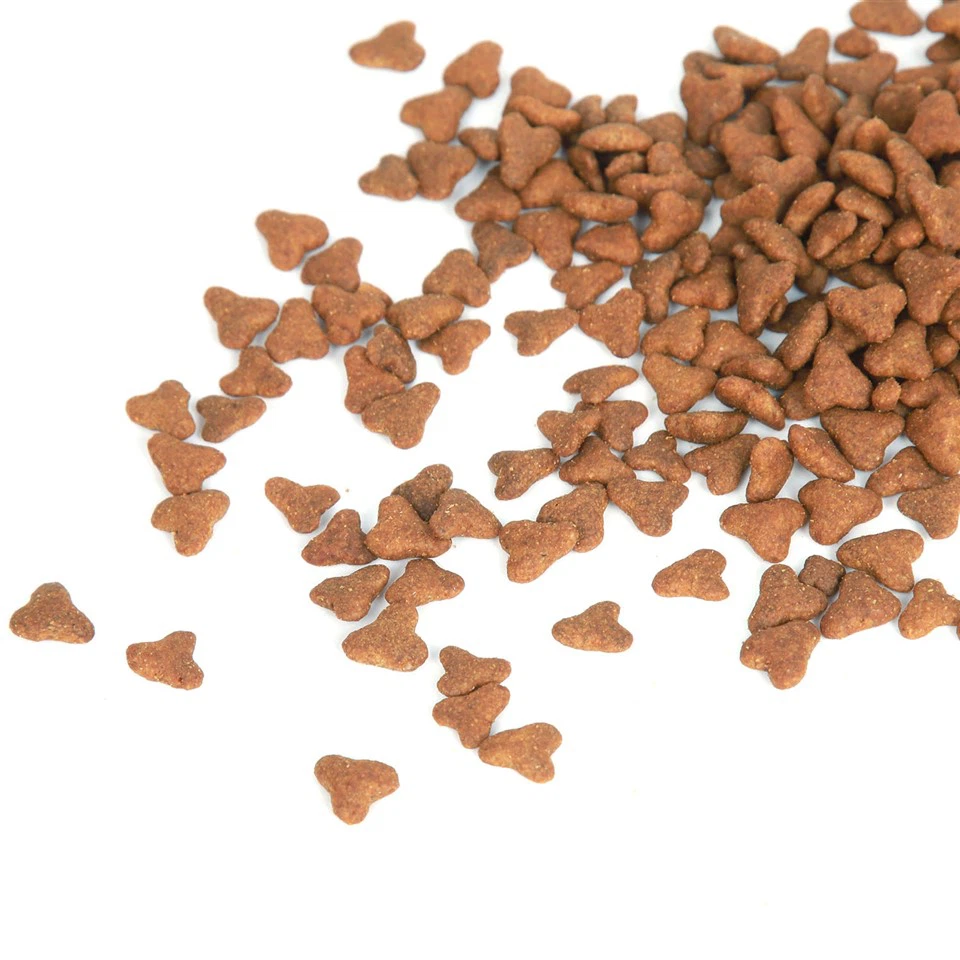Hey there, fellow dog lovers! As a supplier of functional dog food, I get asked a ton of questions about what our furry friends can and can't eat. One of the most common questions I hear is, "Can puppies eat functional dog food?" Well, let's dive right into it and find out!
First things first, let's talk about what functional dog food actually is. Functional dog food is specially formulated to provide more than just basic nutrition. It's designed to support specific health functions in dogs, like joint health, skin and coat health, digestion, and immune system support. These foods often contain ingredients like omega-3 fatty acids, glucosamine, probiotics, and antioxidants, which can offer a range of benefits for our canine companions.
Now, when it comes to puppies, their nutritional needs are quite different from adult dogs. Puppies are growing rapidly, and they need a diet that's rich in protein, fat, vitamins, and minerals to support their development. Protein is especially important for puppies, as it helps build strong muscles, bones, and organs. Fat is also crucial, as it provides energy and helps with the absorption of fat-soluble vitamins.
So, can puppies eat functional dog food? The answer is, it depends. Some functional dog foods are suitable for puppies, while others are formulated specifically for adult dogs. When choosing a functional dog food for your puppy, it's important to look for a product that's labeled as "puppy formula" or "all life stages." These foods are formulated to meet the unique nutritional needs of growing puppies.
One of the benefits of feeding your puppy functional dog food is that it can help support their overall health and development. For example, a functional dog food that contains omega-3 fatty acids can help promote healthy skin and coat, reduce inflammation, and support brain and eye development. Probiotics can help improve digestion and boost the immune system, while glucosamine and chondroitin can support joint health as your puppy grows.
However, it's important to note that not all functional dog foods are created equal. Some products may contain ingredients that are not suitable for puppies, or they may not provide the right balance of nutrients. That's why it's always a good idea to consult with your veterinarian before switching your puppy to a new diet. Your vet can help you choose a functional dog food that's appropriate for your puppy's age, breed, size, and health status.
Another thing to consider when feeding your puppy functional dog food is the quality of the ingredients. Look for a product that uses high-quality, natural ingredients and avoids artificial colors, flavors, and preservatives. You may also want to consider the source of the ingredients. For example, a functional dog food that uses real meat as the first ingredient is generally a better choice than one that uses meat by-products or fillers.
In addition to choosing the right functional dog food for your puppy, it's also important to feed them the correct amount. Puppies have different feeding requirements than adult dogs, and overfeeding can lead to obesity and other health problems. Follow the feeding guidelines on the product label, and adjust the amount based on your puppy's age, weight, and activity level.


Now, let's talk about some of the different types of functional dog food that are available for puppies. One popular type is Pellet Dog Food. Pellet dog food is convenient and easy to store, and it comes in a variety of flavors and formulas. Many pellet dog foods are formulated to provide a balanced diet for puppies, and they may also contain functional ingredients like omega-3 fatty acids, probiotics, and antioxidants.
Another option is The Factory For Dog Food With Meat. These foods are made with real meat as the first ingredient, which means they're a good source of protein for growing puppies. They may also contain other functional ingredients, like vegetables, fruits, and grains, to provide a variety of nutrients.
If you're looking for a functional dog food that's high in protein, you may want to consider Supplier Of High Protein Dog Food. These foods are formulated to provide a higher percentage of protein than traditional dog foods, which can be beneficial for puppies that are very active or have a high metabolism.
In conclusion, puppies can eat functional dog food, but it's important to choose a product that's appropriate for their age, breed, size, and health status. Look for a functional dog food that's labeled as "puppy formula" or "all life stages," and make sure it uses high-quality, natural ingredients. Consult with your veterinarian before switching your puppy to a new diet, and follow the feeding guidelines on the product label.
If you're interested in learning more about our functional dog food products or have any questions about feeding your puppy, please don't hesitate to reach out. We're here to help you provide the best possible nutrition for your furry friend. Contact us today to start a conversation about your puppy's dietary needs and how our functional dog food can benefit them.
References
- American Kennel Club. (n.d.). Puppy Nutrition. Retrieved from https://www.akc.org/expert-advice/nutrition/puppy-nutrition/
- Hill's Pet Nutrition. (n.d.). Puppy Feeding Guide. Retrieved from https://www.hillspet.com/dog-care/nutrition-feeding/puppy-feeding-guide
- Purina. (n.d.). Puppy Nutrition: What to Feed Your Puppy. Retrieved from https://www.purina.com/dogs/nutrition/puppy-nutrition
